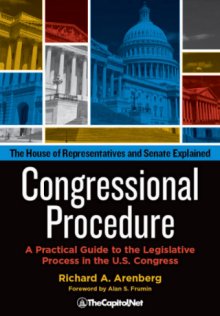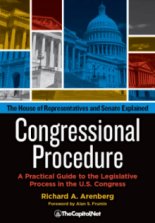Engrossed Bill / Engrossed Measure (CongressionalGlossary.com)
From the Congressional Glossary – Including Legislative and Budget Terms Engrossed Bill / Engrossed Measure photo credit: alancleaver_2000 The final official copy of a bill as passed by one chamber, with the text as amended by floor action and certified by the clerk of the House or the secretary of the Senate. After a measure … Read more






